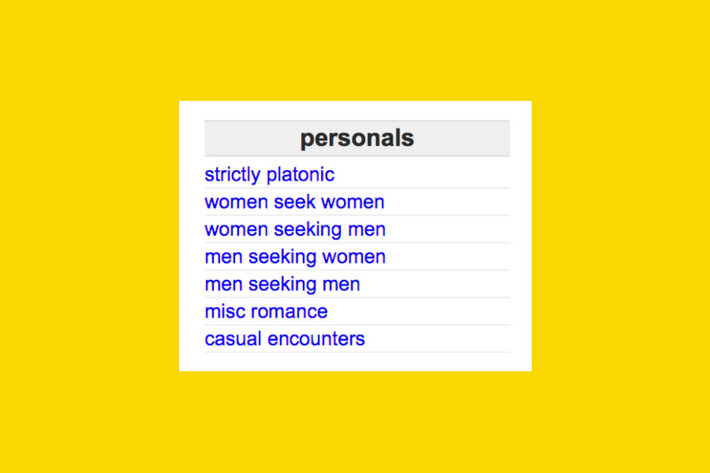The Fight Online Sex Trafficking Act recently passed by Congress has caused Craigslist to take down its “personals” page to prevent users from using the page inappropriately.
Under the new act, companies overseeing websites will be responsible for misconduct committed by people participating in various platforms.
The act, designed to reduce sex trafficking, was passed to keep children and those targeted by sex traffickers safer online. Holding websites accountable for what users post will make website owners more aware of the platform and how to reduce misuse.
According to govtrack, “The Stop Enabling Sex Traffickers Act would open a crack in that prohibition. The bill would allow the government to prosecute websites which knowingly help or promote sex trafficking, and also allow users to sue those websites.”
This one of the most stringent restrictions made to the Craigslist platform since Craigslist’s “erotic services” and “adult services” pages were taken down after a woman was murdered.
According to NPR, Craigslist said, “Any tool or service can be misused. We can’t take such risk without jeopardizing all our other services, so we are regretfully taking craigslist personals offline. Hopefully we can bring them back some day.”
Other website owners will likely need to make changes as well, modifying their design and service offerings to reduce participants’ ability to misuse the platform or use it for sex trafficking.
Sex trafficking, according to Ark of Hope For Children, is an industry that can affect as many as 300,000 people every year in the United States. As social services and families continue to look for solutions, some groups believe that holding websites accountable for the actions of sex traffickers could change the number of children who are targeted online by recruiters in the sex-trafficking industry.
However, the act brings up concerns for free speech on online platforms.
Currently, most websites are protected by Section 230 of the 1996 Communications Decency Act, a legal protection that gives a broad layer of immunity to online companies from being held liable for user-generated content.
According to Aaron Mackey, a Frank Stanton legal fellow at the Electronic Frontier Foundation, the efforts could be cause for worry.
“This bill can return us back to a time before Section 230 was passed in which platforms will be increasingly liable for content posted by third parties that they may not know about,” Mackey told CNN.
He added that while the Googles and Facebooks of the world are armed with legal teams that can help them battle any flood of lawsuits, it’s more concerning for smaller companies with more limited resources.
As a result, websites will need to censor the posts of users, as well as tailor website design and services in a way that makes them unconducive to sex traffickers or those looking to use online platforms in ways other than creators intended.

















